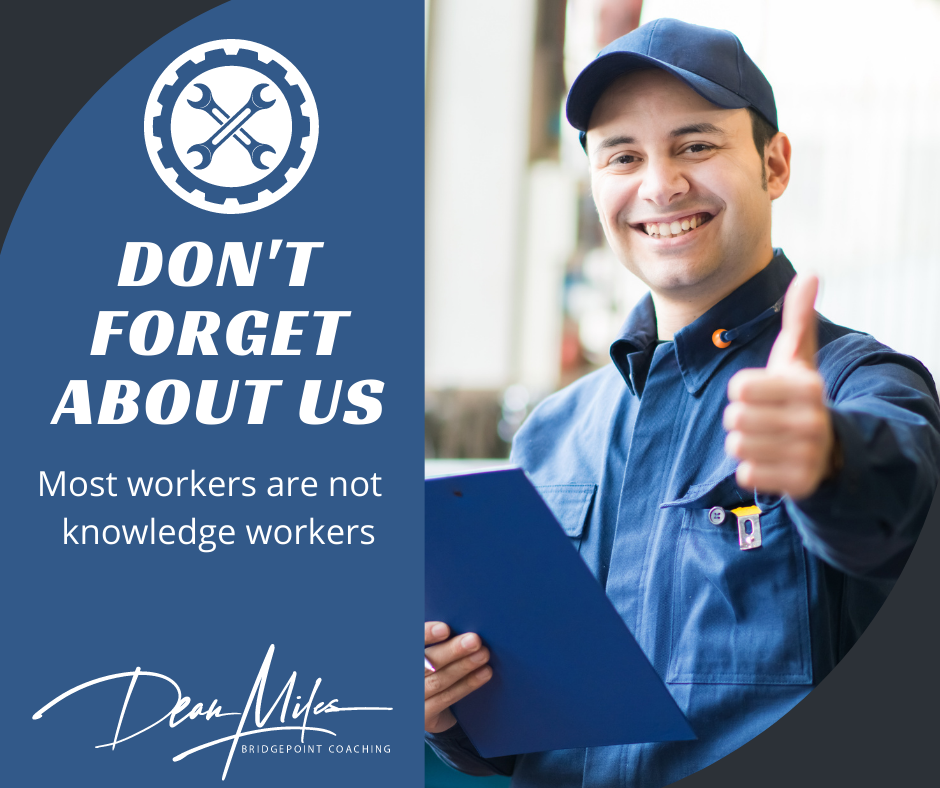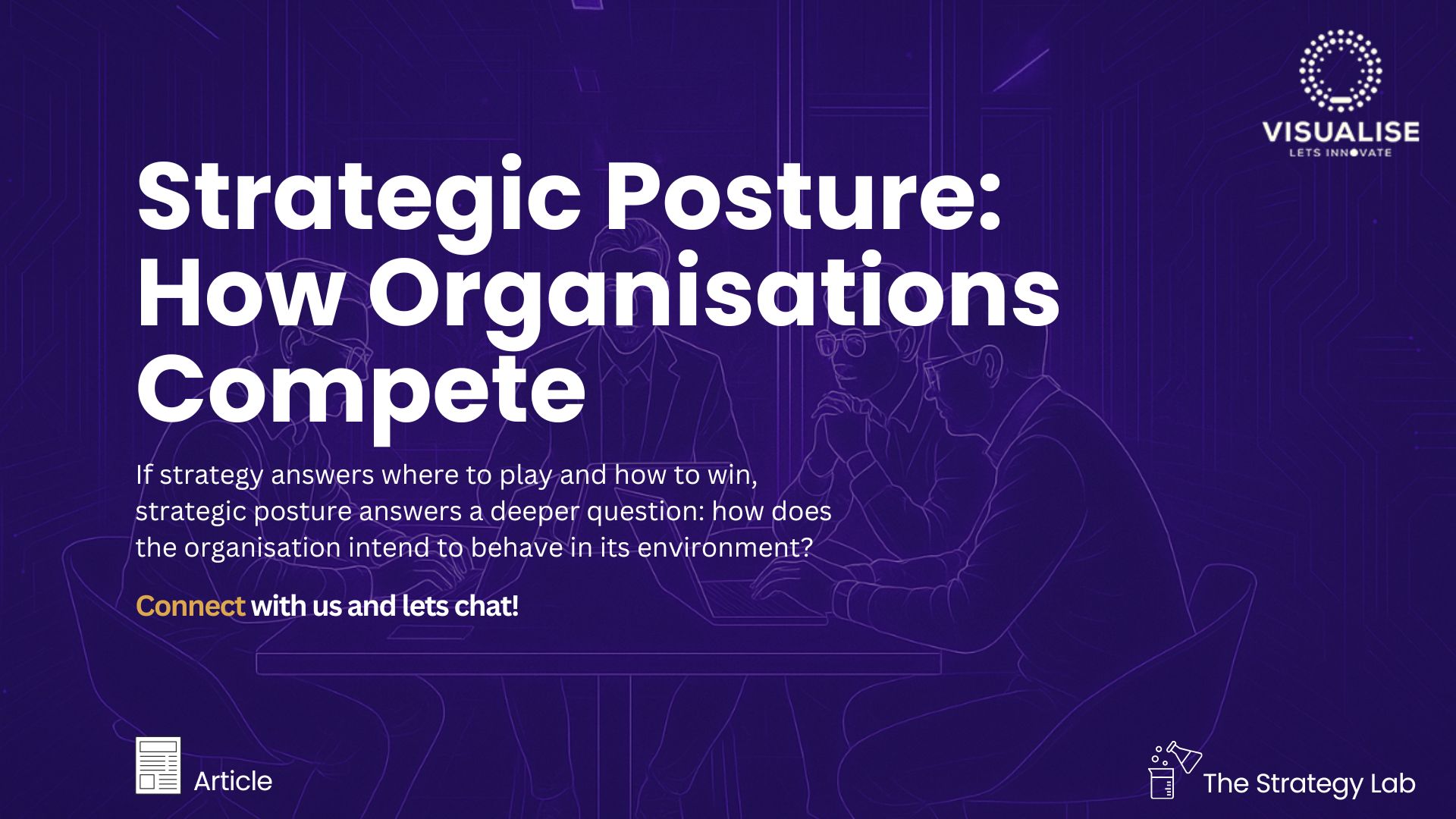May23

There is no doubt that knowledge workers have become a major focus in today's economy. They are the ones who can easily work at any time from any place, and their skills are in high demand. However, it is important to remember that most workers are not knowledge workers. In fact, the majority of workers are employed in sectors such as manufacturing, agriculture, and construction, where working conditions and pay are often poor. We must not forget about the majority of workers who do not have the same privileges as knowledge workers.
It seems like the leadership experts have forgotten about the leaders who lead those who are not knowledge workers. Often referred to as non-skilled workers, these employees typically don't have the same flexibility when it comes to where and when they can work. For many of them, commuting is a necessary part of the job, and they can't just pick up and work from home whenever they want. As a result, the discussion around remote work doesn't always apply to them. But that doesn't mean their needs should be ignored. Leaders of non-skilled workers still have to find ways to motivate and engage their employees, and the new expectations around remote work can make that challenge even greater.
The pandemic has hit the U.S. economy hard, but perhaps no group has been harder hit than non-skilled workers. These are the people who work in businesses that have been forced to close due to the pandemic, such as restaurants, bars, and clubs. They are also the people who work in industries that have been impacted by the change in consumer behavior, such as retail and travel. As a result of the pandemic, many non-skilled workers have lost their jobs or have had their hours reduced. This has led to an increase in poverty and inequality, as well as a decrease in consumer spending. In addition, the pandemic has also had a negative impact on mental health, as people struggle to cope with job loss and financial insecurity. It will take time for the economy to recover, and non-skilled workers will continue to feel the effects of the pandemic for some time to come.
The Covid-19 pandemic has had a profound impact on the way that factories operate. In many cases, managers have had to rapidly adapt their methods of leadership in order to keep workers safe and productive. One of the biggest challenges has been maintaining social distancing while ensuring that production lines are running smoothly. This has often meant making changes to the layout of the factory floor and setting up new protocols for breaks and shift changes. In some cases, it has also meant implementing new technology, such as contactless time clocks and temperature scanners. The pandemic has certainly been a challenge for factory managers, but it has also forced them to be more innovative and adaptable in their leadership style.
As we continue to discuss the best ways to move forward as a nation, it's important that we don't forget about the workers who impact us on a daily basis. These are the men and women who keep our streets clean, our hospitals running, our food stocked, and our schools teaching. They are the unsung heroes of our society, and they deserve to be heard. When we make decisions about the future of our country, we need to consider the needs of these workers and make sure that their voices are included in the conversation. Otherwise, we run the risk of making decisions that don't reflect the reality of their lives. We need to remember that they are the backbone of our country and that their needs should be at the forefront of our minds as we move forward.
By Dean Miles
Keywords: Startups, Future of Work, Business Continuity
 What Leaders Should Be Losing Sleep Over (But Aren’t)
What Leaders Should Be Losing Sleep Over (But Aren’t) Energy System Resilience: Lessons Europe Must Learn from Ukraine
Energy System Resilience: Lessons Europe Must Learn from Ukraine HR Is Designed to Maintain. Succession Planning Demands It Transform.
HR Is Designed to Maintain. Succession Planning Demands It Transform. AI and Embedded Connectivity: A New Era of Smart Devices
AI and Embedded Connectivity: A New Era of Smart Devices Strategic Posture: How Organisations Compete
Strategic Posture: How Organisations Compete